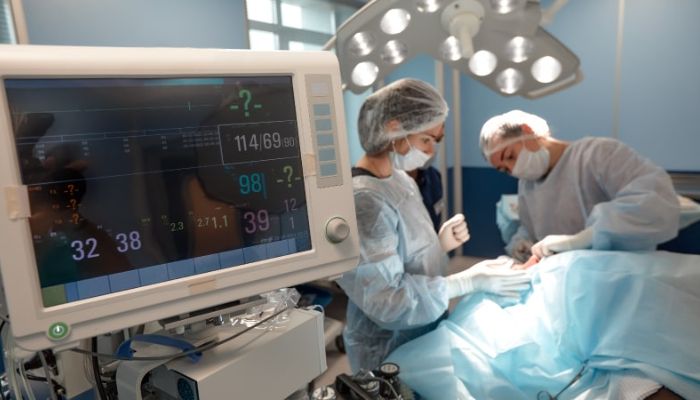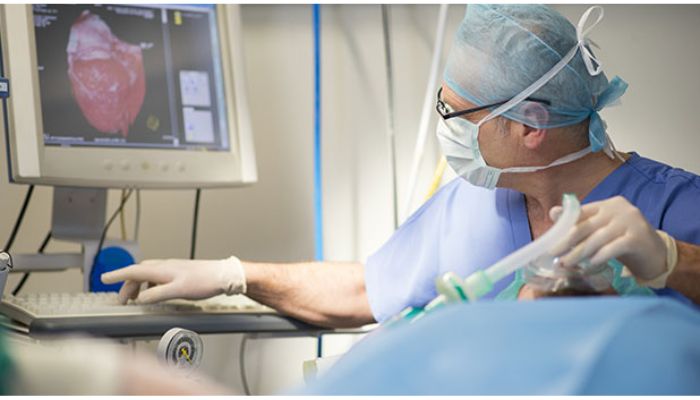Blog
Choosing the Right Path

Choosing the Right Path: Cardiac Care Technology Course for Your Future
The field of healthcare has always been a noble and rewarding profession, attracting individuals with a strong desire to make a difference in the lives of others. Within the vast landscape of healthcare, one specialized area that deserves special attention is cardiac care technology. Cardiac care technology professionals play a crucial role in diagnosing, monitoring, and treating heart-related conditions. If you are contemplating your future in the healthcare sector, enrolling in a cardiac care technology course might just be the perfect path for you.
In this blog, we’ll explore the world of cardiac care technology and why choosing this path could be the right decision for your future. We’ll discuss the importance of this field, the various career opportunities it offers, and the key factors to consider when selecting the right educational program.
The Significance of Cardiac Care Technology:
Cardiovascular diseases are the leading cause of death worldwide. With heart-related conditions on the rise, there is a growing demand for professionals who can provide specialized care and support. This is where cardiac care technology professionals come into play. They are trained to operate, maintain, and troubleshoot the complex equipment used in the diagnosis and treatment of heart conditions.
These professionals work alongside cardiologists and other healthcare providers to ensure accurate and timely delivery of care to patients. From performing electrocardiograms (ECGs) and stress tests to monitoring cardiac rhythms and managing life-saving equipment such as defibrillators, cardiac care technologists are integral to patient outcomes.

Career Opportunities in Cardiac Care Technology:
A career in cardiac care technology offers a diverse range of opportunities. Here are a few paths you can take:
Cardiac Sonographer: Cardiac sonographers use ultrasound technology to capture images of the heart, aiding in the diagnosis and treatment of cardiovascular diseases.
Electrocardiogram (ECG) Technician: ECG technicians perform and interpret ECGs. Which are essential for diagnosing heart conditions like arrhythmias, heart attacks, and other cardiac abnormalities.
Cardiovascular Technologist: Cardiovascular technologists assist in invasive procedures such as cardiac catheterizations and angioplasties, working closely with cardiologists to ensure patient safety and procedural success.
Cardiovascular Perfusionist: Perfusionists operate the heart-lung machine during open-heart surgeries, maintaining the patient’s circulatory and respiratory systems.
Cardiac Monitor Technician: These technicians continuously monitor cardiac rhythms, helping to identify irregularities and notify medical teams of any concerning changes.
Cardiac Rehabilitation Specialist: These professionals work with patients recovering from heart surgery or heart-related conditions, guiding them through exercises and lifestyle changes to improve their cardiovascular health.
Choosing the Right Cardiac Care Technology Course:
Selecting the right educational program is essential for a successful career in cardiac care technology. Here are some factors to consider:
Accreditation: Ensure that the program is accredited by a recognized accrediting body. Accreditation is a mark of quality education and can impact your job prospects.
Curriculum: Review the curriculum to make sure it covers a broad range of cardiac care technology topics. Including theoretical knowledge and hands-on experience.
Clinical Experience: Practical training is crucial in healthcare professions. Look for programs that offer clinical rotations in hospitals or healthcare facilities to gain real-world experience.
Certification Preparation: Some roles in cardiac care technology require certification. Ensure that the program adequately prepares you for certification exams, if applicable.
Faculty and Facilities: Investigate the qualifications of the faculty and the quality of the facilities. Experienced instructors and up-to-date equipment are vital for your education.
Job Placement and Support: Inquire about the program’s job placement assistance and career support services. A strong network and guidance can be invaluable when entering the job market.
Financial Considerations: Assess the program’s cost, available scholarships, and financial aid options to make an informed decision.
The Fulfilling Future of Cardiac Care Technology:
Choosing a career in cardiac care technology is not just about job security and financial stability; it’s about making a significant impact on people’s lives. The work you do directly affects the health and well-being of individuals battling heart conditions. As a cardiac care technologist, you’ll play a crucial role in diagnosing, treating, and supporting patients through their cardiac journey.
Furthermore, this field is ever-evolving, with continuous advancements in medical technology and treatment modalities. Being a part of the cardiac care technology community means being at the forefront of these innovations and contributing to the improvement of patient care.
Conclusion
In pursuit of a fulfilling career in Cardiac Care Technology, your journey begins with the right educational program. Lumeen Paramedical, a trusted name in the field, offers a comprehensive and accredited Cardiac Care Technology course. Their program equips you with the knowledge and hands-on experience needed to excel in this critical healthcare field. With a dedicated faculty, state-of-the-art facilities, and a commitment to job placement support, Lumeen Paramedical ensures that your educational experience is a stepping stone toward a rewarding and impactful career. Join Lumeen Paramedical’s Cardiac Care Technology course and embark on a path where your skills can make a real difference in the lives of those facing cardiac challenges.
Read more : A Bright Future Awaits: The Advantages of BVoc in Medical Lab Technology

